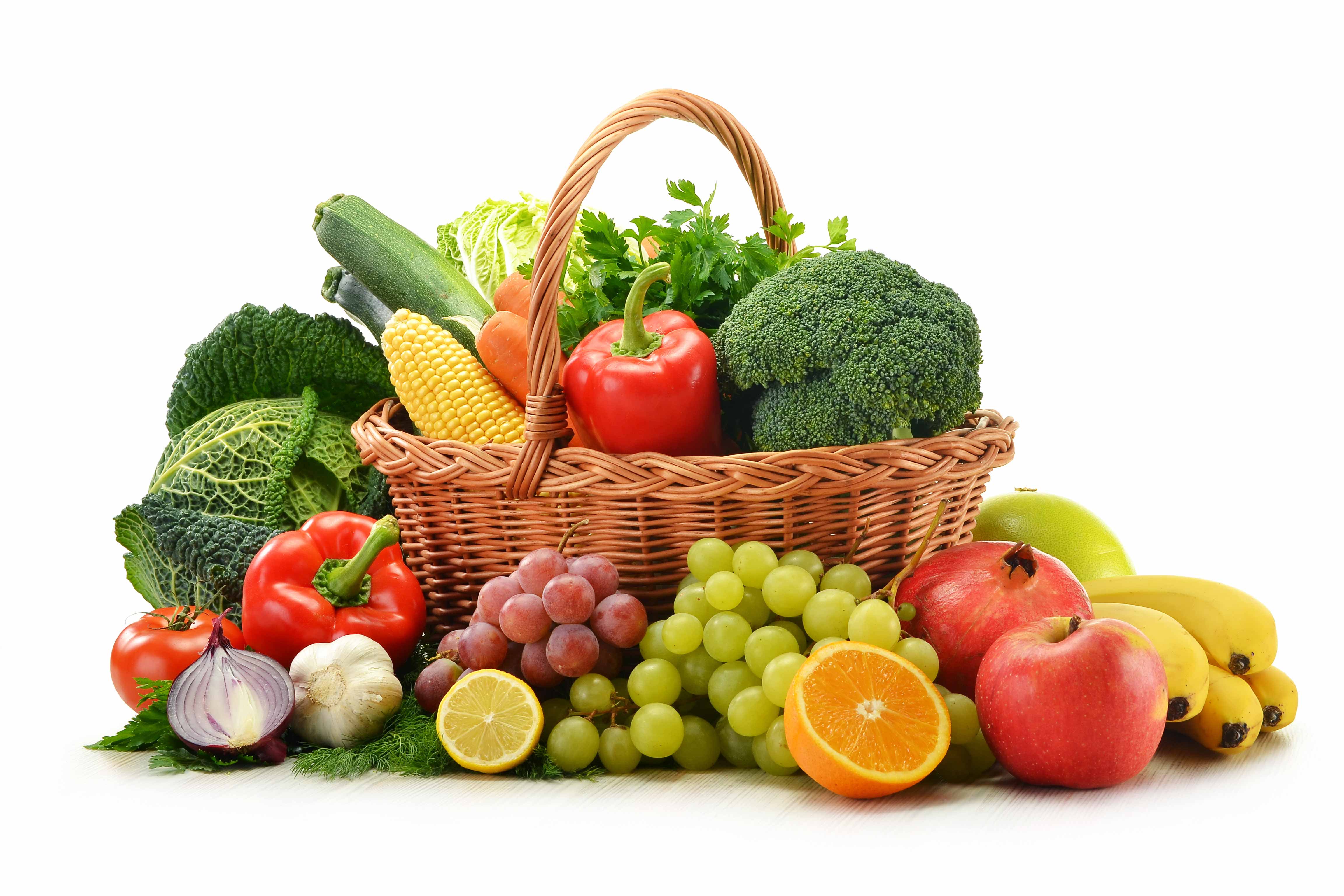Fruits and Vegetables for Healthy Life

Fruits and Vegetables are good sources of Micronutrients and Macronutrients.
Micronutrients include minerals like iron, potassium and calcium and vitamins like vitamin C, folic acid, B complex vitamins and carotenoids. Macronutrients include complex carbohydrates / fiber that help you feel healthy and energized.
Fruits and Vegetables are low in fat, salt and sugar. As part of a well-balanced, regular diet and a healthy, active lifestyle, a high intake of fruit and vegetables can help in preventing risk of diseases like:
- Heart disease and stroke,
- Some types of cancer
- Eye and digestive problems
- Type 2 Diabetes
- Obesity
- Osteoporosis and Kidney stones,
Recommended quantity
The Expert Committee of the Indian Council of Medical Research, taking into consideration the nutrient requirements, has recommended that every individual should consume at least 300 g of vegetables in a day.
In addition, fresh fruits (100 g), should be consumed regularly.
NOTE: In case of any medical problem, the requirement of fruits and vegetables will vary and should be consumed as prescribed by medical expert.
Fruits and vegetables to be consumed
The use of fresh, seasonal and locally available fruits and vegetables is always beneficial as they contain plenty of nutrients besides being tasty and economical.
Only one type of fruit and vegetable do not contain every required nutrient, therefore, variety of fruits and vegetables should be used.
Including commonly consumed leafy greens, tomatoes and other vegetables apart from those which are yellow, orange, red, deep red, purple colored citrus fruits, being vitamin C-rich, enrich the diets significantly. Also it is always good selecting new fruits and vegetables in your meal.
[show_more more=”Continue Reading ▼” less=”Show Less ▲”]
Benefits of nutrients
FOLIC ACID
- Folic acid is a hemopoietin vitamin essential for multiplication and maturation of red cells in our body. Its deficiency leads to megaloblastic anemias.
- Folic acid intake during pregnancy protects the fetus from developing certain congenital defects.
- Folic acid deficiency increases homocysteine levels in blood, thereby increasing the risk for heart disease.
Green leafy vegetables, legumes, nuts and liver are good sources of folates.
IRON
- Iron is an essential element necessary for the formation of hemoglobin. Iron is a part of every red blood cell and carries oxygen throughout the body. Without iron, cells don’t get oxygen to carry out almost every function of the body which leads to anemia.
- Green leafy vegetables are rich in Iron but the absorption is limited. For iron absorption VIT C rich foods should be taken.
VIT A
- Vitamin A is a fat-soluble vitamin that is good for healthy vision, skin, bones and other tissues in the body. Vitamin A often works as an antioxidant, fighting cell damage, but it also has many other uses.
- VIT A is rich in bright colored fruits and veggies like green leafy, tomatoes, sweet potato, pumpkin, carrot, papaya, apricot etc.
VIT C
- VIT C is essential for the growth, development and repair of all body tissues. It’s involved in many body functions, including formation of collagen, absorption of iron, the immune system, wound healing, and the maintenance of cartilage, bones, and teeth.
- Citrus fruits such as orange, kiwi, lemon, guava, grapefruit, and vegetables such as broccoli, cauliflower, Brussel sprouts and capsicums are rich, natural sources of vitamin C. Other vitamin C-rich fruits include papaya, cantaloupe and strawberries.
PHYTONUTRIENTS
- Phytonutrients can also provide significant benefits for humans who eat plant foods. Phytonutrient-rich foods include colorful fruits and vegetables, legumes, nuts, tea, whole grains and many spices. … Among the benefits of phytonutrients are antioxidant and anti-inflammatory activities.
- These special factors are required for delaying ageing and preventing the processes which lead to diseases such as cataract, cardio-vascular diseases, diabetes and cancer
CALORIES
- Most fruits and vegetables have high water and fiber content and thus are low in calories and energy density.
- Research Review: Eating fruits and vegetables may help manage weight. On the other hand some vegetables and fruits like Potato, tapioca, yam, sweet potato, and banana have more than 100 kcal per 100gram
ANTIOXIDANTS
- Antioxidants are substances that may protect your cells against the effects of free radicals — a molecule produced when your body breaks down food or is exposed to tobacco smoke and radiation.
- Raw and fresh vegetables like green leafy vegetables, carrots, fresh fruits including citrus and tomatoes have been identified as good sources of antioxidants
FIBRE
- Dietary fiber is important for our digestive health and regular bowel movements.
- Fiber also helps you feel fuller for longer, can improve cholesterol and blood sugar levels and can assist in preventing some diseases such as diabetes, heart disease and bowel cancer.
Prevention of nutrient loss during cooking
Improper method of home cooking leads to lose of nutrients to a great extent. These losses can be prevented by modifying cooking practices.
Key to improve your cooking practices
- Don’t keep the chopped vegetables for long duration prior to cooking.
- Over washing of cereals leads to loss of water soluble vitamins and minerals.
- Avoid over cooking and deep frying and prefer pressure cooking, steam cooking, baking.
- Make use of water in which cereals, pulses, vegetables are soaked or cooked; e.g. dal, rice, chole, rajma etc.
- Avoid use of soda as it leads to loss of vitamins.
- Use salt and spices in moderation.
- Don’t use artificial colors in cooking, it damages liver.
- Don’t wash vegetables after cutting, chopping and peeling.
- Preparing food in iron utensils increases iron content in food.
[/show_more]














